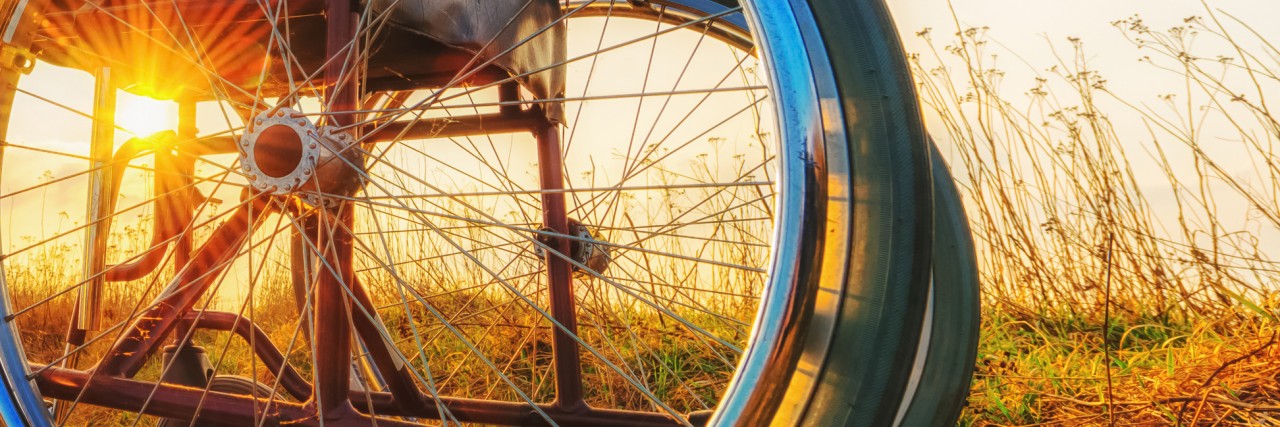My name is Sara, and I have a disability. I recently said this (or something like it) out loud for the first time. It’s an odd shift in identity, to go from studying disability in an academic sense and understanding how to advocate for people with disabilities as a professional – to becoming disabled.
I was already working through this identity shift when I came upon this article in the New York Times by the same name: Becoming Disabled (If you haven’t read it, please take a minute to do so – it is so worth the time, I promise.) Unlike the author of this brilliant piece, I was well aware of the presence of disability culture, and the subtleties of how a group of people with a variety of differences come together to form one entity — although sometimes disagreeing among themselves. I just floated somewhere in the realm between able-bodied and disabled for many years. In other words, I wasn’t sure if my particular brand of adversity “counted” as a disability.
Recently, some things happened that made it pretty clear I am now more disabled than able-bodied, although my level of disability can vary from day to day. Last spring, I resigned from my job and left my career as a school psychologist – I was no longer able to keep up physically or mentally. Then, this summer, it became evident that I needed a disabled parking placard. My doctor more than agreed. Most recently, my physical therapist gave me the “homework” of purchasing a shower chair in hopes of curbing my nasty habit of falling while I bathe. Submitting to all of this was and is difficult. Working less, parking up close and having a place to sit in the shower all sound lovely when they are a choice, but when they become a necessity, it’s not as a great as it sounds. It’s just what you need to even things up so you can get through your day.
Becoming disabled in today’s day and age is further complicated by the presence of ableism, whether intentional or not. As a professional in the field, I know how far we have come with making the world a more welcoming place for people with disabilities in the last 50 years. As a person with a disability, I also know that ableism is real, and we still have a long way to go.
We live in a world where the murder of nearly 20 disabled people in their sleep goes more or less untalked about. Where Paralympians are “celebrated” with pictures of able-bodied people digitally altered to look disabled. Where a candidate for President of the United States of America openly mocks a reporter with a disability and still polls neck and neck with the candidate who is an ally for people with disabilities. A world in which that candidate becomes the President Elect. A world in which people with disabilities are often left out of the conversation about standing with minority groups in this country during Trump’s unfortunate ascent to power.
My name is Sara, and I have a disability. I am scared, because disability makes me vulnerable, and because I live in a culture that is not always accepting of the fact that disability does not discriminate on the basis of age or any other qualifier. It does not always look the way you think it will. Anyone can become disabled at any time during their life. That is why it is important not only for me, but also for you to create a world in which people with disabilities can be understood and accepted. You might find one day that you need it, too.
This excerpt from Becoming Disabled highlights the public perception of disability and implies how different it is from reality:
A person without a disability may recognize someone using a wheelchair, a guide dog or a prosthetic limb, or someone with Down syndrome, but most don’t conceptualize these people as having a shared social identity and a political status. “They” merely seem to be people to whom something unfortunate has happened, for whom something has gone terribly wrong. The one thing most people do know about being disabled is that they don’t want to be that.
My name is Sara, and I have a disability. I also have a voice. I am not just someone that something bad happened to. I am a whole person; I am as complex as you are. Yes, I have unique needs, and require a little more help than most to create an environment in which I can thrive – but I’m working on it.
There are people all around you like me. The ones who work all day, every day behind the scenes just to get by. I am afraid for our future in this country, during this time of uncertainty. I am afraid that in Trump’s America I and others like me will not be valued. Still, I refuse to not share that this is a part of my identity. I am disabled, and I guarantee there are people all around you, people you love, who are too. Stand by us, please.
We want to hear your story. Become a Mighty contributor here.

